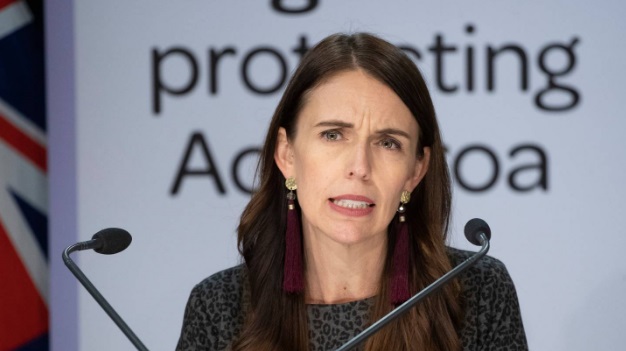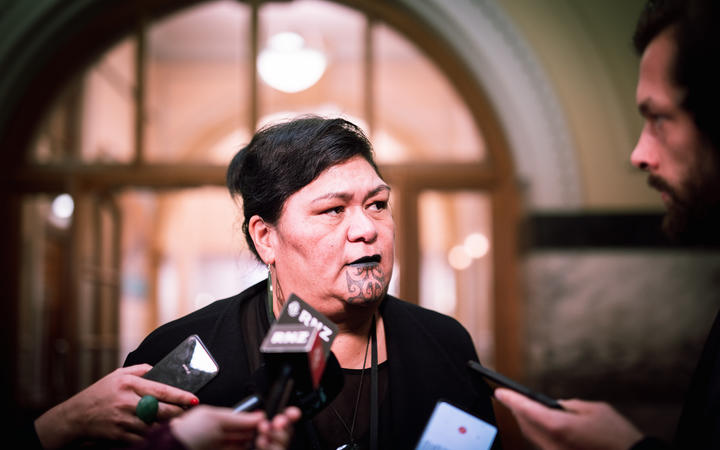
He refers to Ardern as New Zealand's "tiresomely woke Prime Minister".
Coughlin said that attempts by other Five Eyes countries, Britain, the United States, Canada and Australia, to present a united front against Beijing have been thwarted by the New Zealand Government's preference for maintaining cordial ties with Beijing.
"Thanks to Wellington's naïve decision to prioritise trade with China over its membership of the elite Five Eyes intelligence-sharing network, Ms Ardern can expect her country's isolation to deepen further as New Zealand faces the very real prospect of expulsion from the alliance over its pro-Beijing stance."
Coughlin made the comments in an opinion piece in response to statement this week by Foreign Minister Nanaia Mahuta in response to questions from reporters in Wellington.
She said New Zealand was not comfortable with an expanded remit of Five Eyes to speak for New Zealand.
The issue is likely to be discussed tomorrow when Mahuta and her Australian counterpart, Marise Payne, hold talks in Wellington.
Twice last year, New Zealand signed up to Five Eyes statements about Hong Kong, once when Coalition partner Winston Peters was foreign minister and once in November when Mahuta became minister.
But Mahuta does not want to make a habit of conducting diplomacy through Five Eyes.
She said she did not want to use Five Eyes as the first point of contact on a range of issues that existed outside of its remit.
"That is a matter that we have raised with Five Eyes partners that we are uncomfortable with expanding the remit of Five Eyes."
She said New Zealand would much rather prefer to look for "multilateral opportunities" to express its interests on a number of issues.
New Zealand has also issued many statements on its own, on issues related to China, some with Australia and some with larger multilateral groupings.
The Daily Telegraph article claims that the Five Eyes alliance last year decided to change its remit from collecting and sharing intelligence to promoting shared values on democracy and human rights.
That is a reference to a defence ministers' teleconference meeting in which New Zealand was represented by New Zealand First minister Ron Mark.

Sources in New Zealand say no change in the Five Eyes remit was discussed by the Cabinet and the Government does not see that press statement as a change in the Five Eyes remit either.
No Five Eyes partner has raised expulsion or suspension with New Zealand.
The article also says that in 2003, London and Washington considered ending New Zealand's membership of Five Eyes in response to former Labour prime minister Helen Clark apparently scaling back its co-operation with Five Eyes because of her opposition to the Iraq war.
When contacted by The New Zealand Herald, Helen Clark said she was staggered at the suggestion.
She had absolutely no recollection of any scaling down and believes the head of the agencies would back her up.
She believes that Five Eyes straying out of the shadows and into more public positioning was problematic.
"That is trying to get everyone into a line and New Zealand does value its independent foreign policy and it starts to go over lines."
New Zealand should make its concerns known over China but there was nothing wrong with expressing it through "concerted unilateralism".
"My recollection is that for years no one even admitted it existed. It operated best in the shadows as an intelligence-sharing pool.
"I never sought to disengage New Zealand from that intelligence-gathering co-operative."
She said she had remained close to former British prime minister Tony Blair during that period and would be surprised if he had sanctioned talk of kicking New Zealand out of Five Eyes. And former Canadian prime minister Jean Chretien had been as equally opposed to the Iraq war as Clark.
Ardern has been asked for comment.
The Telegraph is not the only British newspaper to have reacted strongly to Mahuta's comments – made after a speech about China in which she was critical of how it operates in the Pacific.

The Times has reported that New Zealand has reversed an agreement to expand the network's intelligence-sharing network.
Five Eyes began as a wartime intelligence agreement between Britain and the United States intelligence agencies and in 1946 was formalised into the Ukusa agreement for signals intelligence between the GCHQ and NSA, to which Canada was added in 1948 and Australia and New Zealand in 1956.
New Zealand maintained the operation of its spy satellites to supply the alliance with intelligence during the 30-year rift with the United States and nuclear policy - and despite New Zealand's suspension from the Anzus security alliance.
Some limits that had previously been imposed on sharing intelligence with New Zealand and instigated by the US were relaxed when Clark was prime minister.
New Zealand was fully let back into the Five Eyes club in Barack Obama's first term.
The last reprisals against New Zealand's anti-nuclear position by the United States were lifted only in 2016 – announced during the visit of then US vice-president Joe Biden.
During the time of reprisals, New Zealand exercised a more independent foreign policy than it had as a formal ally of the US and it expanded its relationship with China, being the first western country to sign a free trade deal with it.












